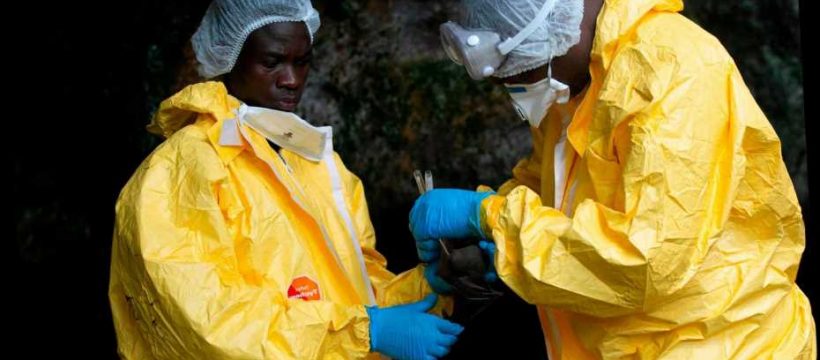THE doctor who discovered Ebola has warned more pandemics even deadlier than Covid are coming to threaten humanity.
Professor Jean-Jacques Muyembe Tamfum was part of the research team which investigated the first known outbreak of the Ebola virus in 1976.
⚠️ Read our coronavirus live blog for the latest news & updates
He now fears the world faces an unknown number of new and potentially fatal viruses emerging from Africa's tropical rainforests.
"We are now in a world where new pathogens will come out," he told CNN. "And that's what constitutes a threat for humanity."
Asked whether he believes future pandemics could be more apocalyptic than Covid-19, he chillingly replied: "Yes, yes, I think so."
Researchers are now working to combat the threat of so-called 'Disease X' – a pathogen that could sweep the world as fast as Covid but with Ebola's shocking fatality rate.
As a young researcher, Professor Muyembe took blood samples from victims of the then-unknown disease that killed nine out of 10 patients.
Those samples were sent from the Democratic Republic of the Congo (DRC) to scientists around the world who discovered a worm-shaped virus in patients' blood later named after the river Ebola.
It's believed the disease – which causes vomiting and horrific internal bleeding – first spread to humans from an animal possibly a fruit bat.
Prof Muyembe now runs the Institut National de Recherche Biomédicale in Kinshasa, capital of the DRC, and warns more zoonotic illnesses – where pathogens jump between animals and humans – are coming.
Covid-19 is a zoonotic disease which some fear jumped to humans at a wet market in Wuhan, China, at the end of last year.
Prof Muyembe believes the humans rapidly encroaching into the wild hugely increases the risk of new pandemics.
"If you go in the forest… you will change the ecology, and insects and rats will leave this place and come to the villages… so this is the transmission of the virus, of the new pathogens," he said.
One of the Congo's main exports is "bushmeat" from crocodiles, chimps and other exotic animals which are slaughtered and sold in street markets.
Any of these animals could be harbouring a dangerous new virus just waiting to cross over to humans, fear experts.
Only 15 years ago it was widely thought tropical foreststeeming with exotic wildlife threatened humans by harbouring the viruses and pathogens that lead to new diseases in humans like Ebola and dengue.
But researchers now believe that it is actually humanity’s destruction of biodiversity that creates the conditions for new viruses and diseases such as Covid-19 to flourish.
“We invade tropical forests and other wild landscapes, which harbour so many species of animals and plants – and within those creatures, so many unknown viruses,” David Quammen, author of Spillover: Animal Infections and the Next Pandemic, wrote in the New York Times.
“We cut the trees; we kill the animals or cage them and send them to markets. We disrupt ecosystems, and we shake viruses loose from their natural hosts. When that happens, they need a new host. Often, we are it.”
The Ebola virus disease – previously called Ebola haemorrhagic fever – is a viral infection that occurs in humans and primates.
The virus – which has killed tens of thousands in Africa -is part of the Filoviridae family, which also includes Marburg virus.
To date, scientists have identified five strains of Ebola – four of which are known to cause disease in humans.
The natural reservoir – or host of the virus – is thought to be the fruit bat.
Non-human primates are a secondary host, and like humans develop fatal symptoms, so are unlikely to be the reservoir.
The Ebola virus was first identified by a team of scientists in what was then called Zaire, now known as Democratic Republic of the Congo, in 1976.
Infection has been recorded in humans through contact with infected chimpanzees, gorillas, fruit bats, monkeys, forest antelope and porcupines.
Source: Read Full Article





